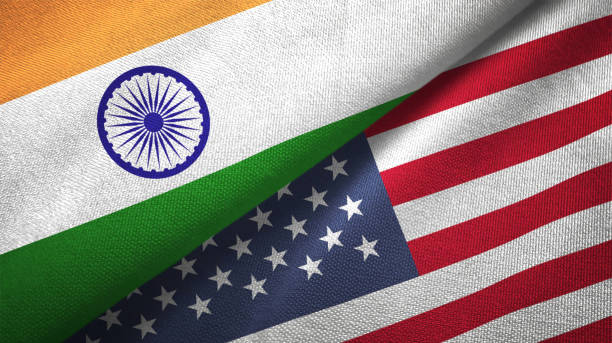✍️By Anjali Gope

In the present age of globalization policy changes in America, specifically in AI and/or trade, directly affect countries such as India. Positive and negative changes in U.S. AI policy and U.S. import-export policy changes in just the past few years have produced even more chances (both opportunities and risks) for India.
1. Rise of AI and Its Impact on India.
America has been and continues to invest more and more in AI development. OpenAI, Google, and Microsoft are leading the world in the race of AI. However, for security and ethical reasons, America has imposed restrictions on the export of advanced AI tools and chips to a number of countries.
For India, there were two sides. On the one hand, Indian IT companies and startups were not able to access the new AI tools. On the other hand, “Make in India AI” was born. Indian developers started to locally develop applications of AI and even language models exclusively for Indian customers.
Social media set the tone. AI tools such as ChatGPT, Midjourney, and Gemini all made a splash during that season as well (hashtags such as #AIVsHuman, #MadeInIndiaAI, and #FutureWithAI were trending on Instagram and Twitter). Everyone was generating content with AI, from reels to podcasts to resume writing.
2. Recalibrating Import-Export Policies and US-India Trade Relations
America’s new import/export policies implemented a tariff hike on products such as Indian steel and aluminum, while India put in place its own Digital Protection Act. The two countries negotiated trade deals together, instead of escalating tensions.
Besides exports such as drugs, software services, and human capital, India could now import AI chips, cloud infrastructure, and premium hardware from the US. This represented a significant change in the direction of trade that elevated India as a more robust player when synchronizing platform and technology alliances on the global stage.
Social media again highlighted engagement. In the aftermath of the #BoycottChina backlash, Indian social media participants began to share hashtags like #IndoUSPartnership, #SupportLocal, and #TechMadeInIndia, which showed an improving sense of online patriotism.
3. Impact on Indian Students and Jobs Market
The most relevant impact of this change is evident in the jobs and education sector. The US has loosened up its professional visa policy, particularly in technology and AI jobs. As a result, more Indian student workers are heading abroad.
Social media platforms, including LinkedIn and Instagram, were seeing a correlative rise in posts with statements like “My U.S. AI Job” when Indian youth were writing about how they went from being college project volunteers and helping others to getting jobs with foreign based AI companies. This encouraged many more young people to search for jobs in AI, data science and machine learning.
Conclusion
The AI policy and trade revolution in America has had a profound impact in India. There was some access, and some tariff challenges, but India seized the moment to double down on its own innovation and outreach to the world. It has resulted in a stronger Indo-U.S. relationship, we more tech talent, and a digital and diplomatic revolution in India.
With the advent of the age of artificial intelligence, the wait is over. The future young Indo-U.S. relationship is changing the world as we enter the next evolution, a new age based on collaboration, creativity and trust.






